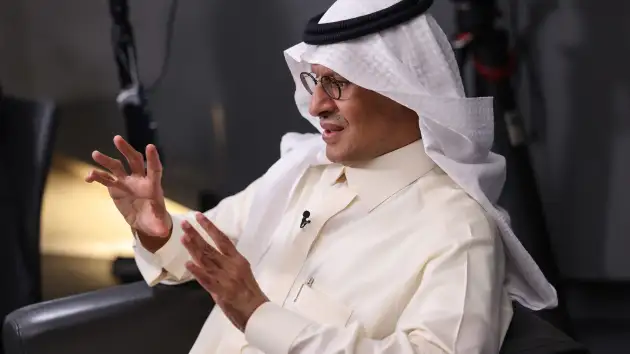The powerful Organization of Petroleum Exporting Countries and its allies, or OPEC+, will meet virtually on Thursday to decide on the next steps in production policy. The meeting was postponed due to internal unrest, the impending expiration of a significant Saudi supply cut, and Middle East conflict.
All eyes are on whether the OPEC subset, led by Saudi Arabia, which is a major player in the region, will have resolved its differences after sources informed that Nigeria and Angola were against lowering the baselines for the following year. Baselines—the benchmarks by which quotas and cuts are determined—have been a point of contention within OPEC+, causing negotiations to stall in the summer of 2021 due to opposition from the UAE.
Due to infrastructural sabotage, spare capacity depletion, and inadequate funding, Angola and Nigeria have struggled with declining output. However, there would be dangers if future output recoveries were to occur if lower baselines were accepted. The baselines for the two nations for 2024, as well as their production quotas implicitly, were supposed to be examined after evaluation by three independent data sources.
As the clock ticks down to important meetings between OPEC, OPEC+, and their technical committee, two delegates from OPEC+, who could only speak anonymously due to the sensitive nature of the discussions, told on Tuesday that a compromise had not yet been reached.
Last weekend’s events were originally planned as in-person meetings in Vienna, but they were suddenly changed to virtual conferences at the last minute. Their new date coincides with the opening day of the United Nations Climate Change Conference (COP28) in 2023, which is being hosted by the UAE, a major OPEC member that is attempting to establish itself as an advocate for the green transition.
In addition to internal conflict, OPEC+ has been facing frustration from the group over what they see as a mismatch between prices and supply-demand fundamentals. This includes Saudi Energy Minister Prince Abdul Aziz bin Salman, who in May issued a warning to market speculators to “watch out.”
Last week, three OPEC+ delegates emphasized that liquidations in tight futures markets had put pressure on recent oil prices, while a fourth delegate asserted that current global politics, particularly those in Gaza, are shaping prices.
In addition to the 2 million barrels per day production cut already in place among OPEC+ members, some members have also voluntarily reduced their output by 1.66 million barrels per day. Up until the end of 2024, both were agreed upon.
Above all, until the end of this year, Saudi Arabia and Russia will impose daily supply drops of one million and 300,000 barrels, respectively. Due to a shaky recovery in China and political unrest in the Middle East, prices that had been stagnant due to high interest rates and banking issues during the first half of the year have since rebounded.
One of the previously mentioned delegates stated that in order to “support the market,” OPEC+ would need to announce policy, while another suggested that cuts might be discussed. A different delegate, however, acknowledged that there is uncertainty surrounding Iran and Venezuela, where the United States has signaled easing and tightening its oil sanctions, respectively, and concluded that it is unlikely that the coalition will alter its course.
Additional cuts might rekindle long-dormant hostilities with the White House, which has remained silent since a verbal spat with Riyadh last year but prefers cheap gas prices. Calls for increased production from the United States may run counter to Washington-backed international cooperation on decarbonization at COP28.
Oil leak
It is unclear to OPEC+ and other markets whether the war between Israel and the militant Palestinian organization Hamas will extend throughout the Middle East, resembling the crisis that occurred half a century ago and led to several Arab nations limiting their oil exports to the United States.
One of the sources mentioned that the Organization of Arab Petroleum Exporting Countries decided to impose the embargo in 1973. Two other OPEC+ delegates stated that the coalition would not politicize production.
After being restrained by American efforts to improve relations between its two allies, Riyadh’s tone toward Israel has gradually become more aggressive, with Saudi Crown Prince Mohammed bin Salman currently pleading with nations not to arm Israel. The Islamic oil embargo that Ayatollah Ali Khamenei has called for against Israel has not yet been implemented, and Iran’s sanctioned status has significantly diminished its influence in OPEC+ diplomacy.
Tehran’s own crude exports are in doubt in the long run. In light of the ongoing Middle East conflict, the United States will now impose oil sanctions against Iran, according to White House energy security advisor Amos Hochstein, who also predicted that Iran’s oil exports would decrease.
In a related development, a Libyan shipper told that Libya rejected a vessel that was going to load crude locally due to a prior trip to Israel and instead decided to strengthen a law that criminalizes relations with Israel. The security of well-traveled oil routes in the Red Sea is weakened by the Houthi group of Yemen’s decision to hijack a cargo ship on suspicion of having ties to Israel and designate all tankers owned by or dealing with Israel as a “legitimate target.”





